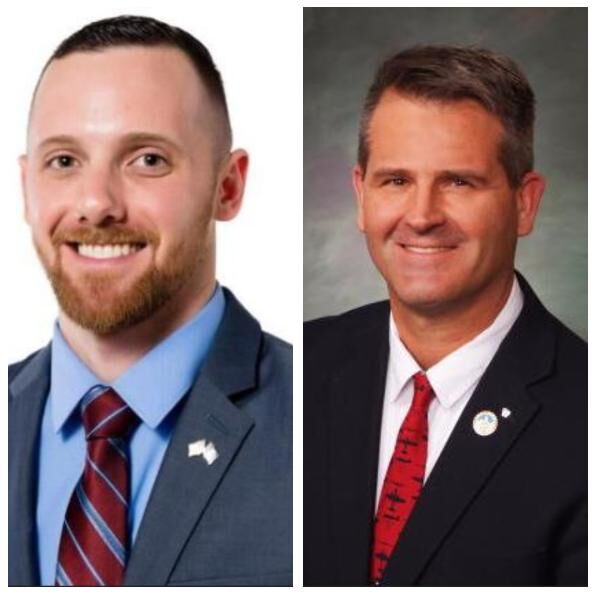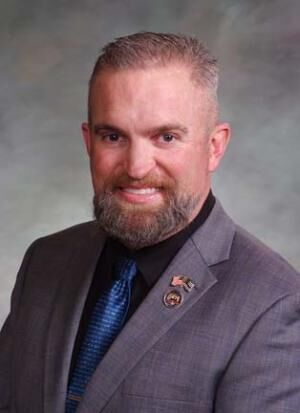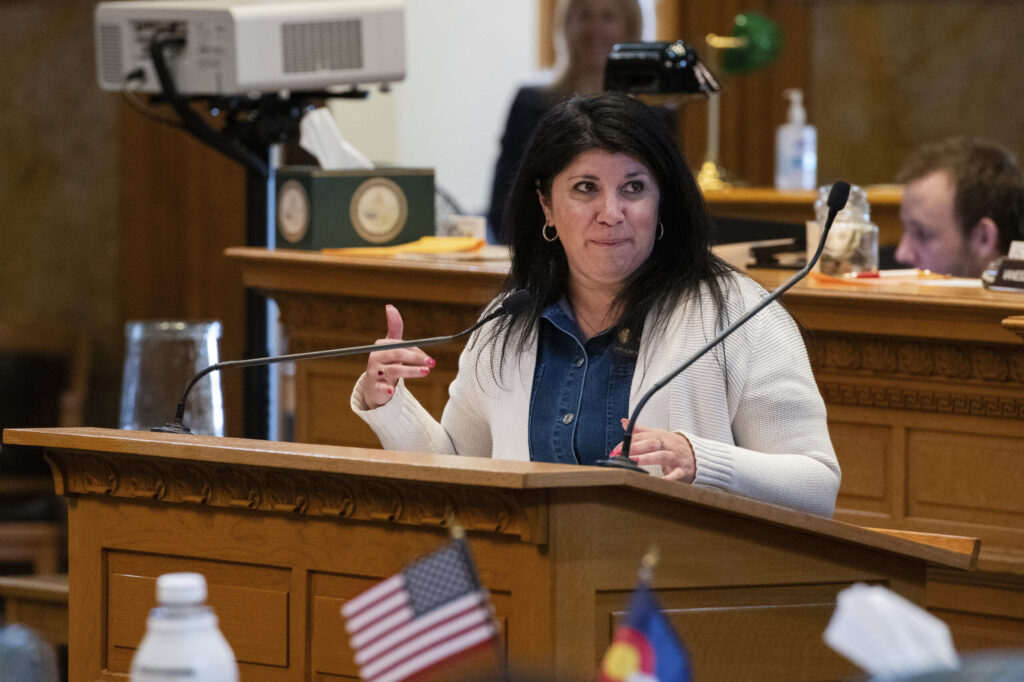Bill to ease legal adoptions for same sex couples clears first House committee

Couples who conceive through artificial insemination or use a surrogate have a long road ahead to secure their legal parental rights.
A bill that won bipartisan approval from a House committee Tuesday hopes to make that process just a little easier.
House Bill 1153 would simplify the process for courts in dealing with parental rights for those who use assistive reproductive technologies, such as artificial insemination or a surrogate, to have children. The bill would primarily assist LGBTQ couples, although it would also help opposite-sex couples who use a surrogate or donated eggs, according to sponsor Rep. Kerry Tipper, D-Lakewood.
HB 1153 won a 10-2 vote, with two Republicans joining committee Democrats to vote in favor during the House Public & Behavioral Health & Human Services Committee hearing on Tuesday.
For years, courts have tried to use a law around step-parent adoptions to adjudicate parental rights for couples who use reproductive technologies, Tipper said.
What that means for LGBTQ couples, for example, is that when the child is born, both parents’ names appear on a birth certificate, but Tipper said that while the document is a presumptive proof of parentage, it is not a conclusive one. It becomes an issue when the parents move to another state, since other states do not have to accept the birth certificate as conclusive proof.
There’s also the concern about what the current U.S. Supreme Court may do to LGBTQ rights, she added.
She cited another example – when two women who get married have children. One carries the baby, created with donor sperm, and therefore is biologically related to the child. Another instance is when donor eggs and sperm are used, and neither woman is biologically related.
Both moms would be on the birth certificate, Tipper said, but they would have to go through the step-parent adoption process.
This recently happened in Colorado, and the court had to terminate the parental rights of one of the moms – the one who wasn’t the biological mother – before moving forward with the stepparent adoption.
That created a whole new problem: Once parental rights are terminated, that person can’t adopt, Tipper said.
“It’s unfair and expensive,” she said, adding the system isn’t working.
The solution under HB 1153 is to create a whole new adoption process.
Under the bill, some of the standard requirements for adoption would be eliminated, such as background checks and parental visits, Tipper said. The bill would also remove the requirement of obtaining consent from an anonymous donor.
The change in law would help opposite sex couples who use a surrogate from another state, Tipper said.
Current law only allows one person in a couple to be on the birth certificate when a surrogate is used, so when the couple returns to Colorado, they have to go through the adoption process to get the other parent on the birth certificate.
Inside the Capitol, the most prominent example is House Majority Leader Daneya Esgar, D-Pueblo, the bill’s co-sponsor. Esgar gave birth last July to a daughter, Marlo. Both Esgar and her wife, Heather Palm, are on the birth certificate but Heather is not legally considered to be their child’s parent.
Heather is not Marlo’s stepmother, either, Esgar told the committee.
“Heather is her mother in all ways,” she said, including biologically. While Esgar was the one who got pregnant, the eggs came from Heather, which Tipper later said is a way for both parents to share in the biological experience.
The bill would simplify the “unequal adoption process that we still are going to have to go through,” and eliminate the in-home study, fingerprinting for a criminal offender, a record information search, and verification that their child is not listed on a missing children’s registry, Esgar said.
It doesn’t make the adoption process equal, but it’s a step in the right direction, Esgar said of the measure, which 13 other states have already adopted.
“My wife should not have to go through an adoption process to adopt her biological daughter,” Esgar said. “This isn’t an adoption. This was a child that we both consensually in our marriage consented to create and a child that we gave birth to and a child that we are bringing into this world together to raise together.”
The only testimony against the bill came from Scott Horak, who said the bill fails to follow the issue of aborted fetuses whose genetic material has been harvested.
He said the bill would treat babies as property, calling it akin to slavery, and also said Roe v. Wade established slavery. Committee chair Rep. Dafna Michaelson Jenet, D-Aurora, later called the comments irrelevant to the bill .
Palm also testified Tuesday.
“Even though Marlo looks like me and is genetically my child, the state does not recognize me” as her legal parent, she said. During their pregnancy, Palm said she learned she would have to adopt Marlo using the step-parent process, which she called “absurd.”
Megan Anderson did go through step-parent adoption process when she and her partner, Lynn, had their daughter in 2013. That meant $800 in home study and parenting classes, more than $1,500 in legal fees, submitting fingerprints both to the FBI and the Colorado Bureau of Investigation, and then to showing up at a courthouse and praying a judge would grant Lynn parental rights.
They were lucky they had the resources to go through all that, Anderson said.
Attorney Ellen Trachman, who assists families going through this process, drove home the issue over how other states regard the process. Some are terrified to travel outside of Colorado, she told the committee, fearing that in case of a car accident, one parent will not be recognized as a legal parent. Birth certificates can be ignored, she said.
The bill would cut into her business, but Trachman said she would cheer that outcome.
“If this law passes, my firm will likely lose these clients and that income. That is a sacrifice I am happy to see,” the lawyer said.
HB 1153 now moves on to the full House for debate.














